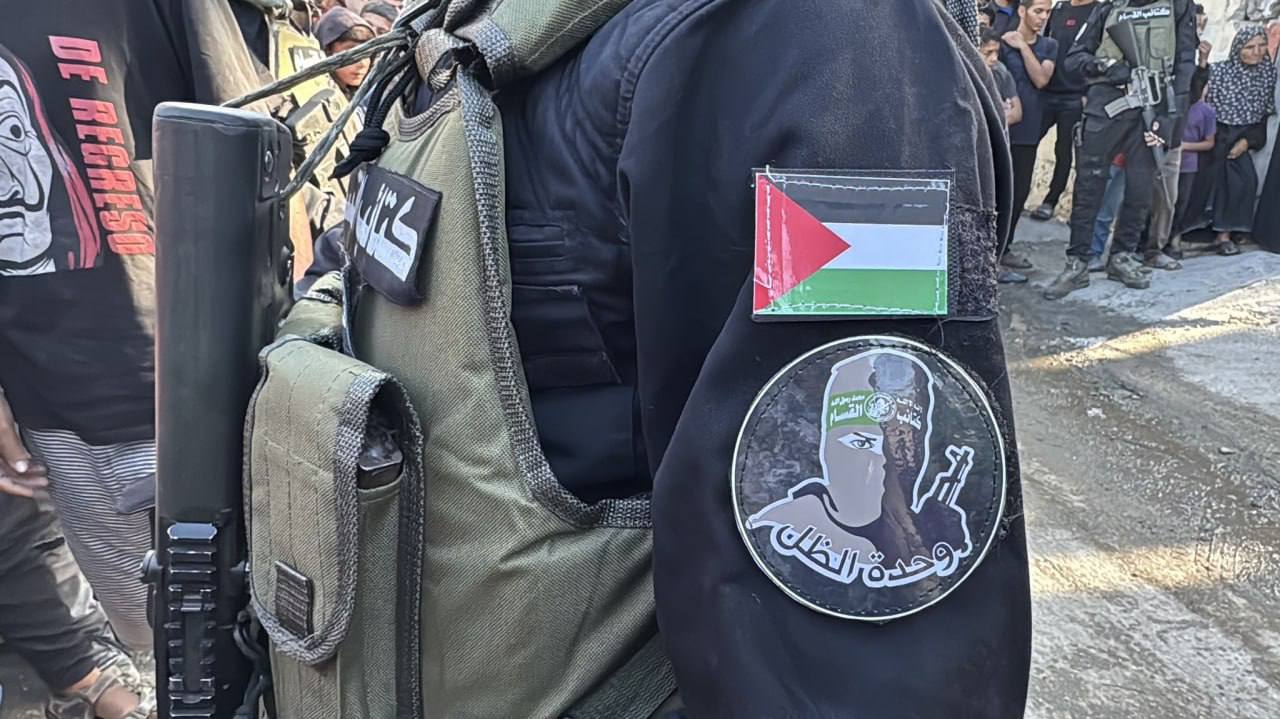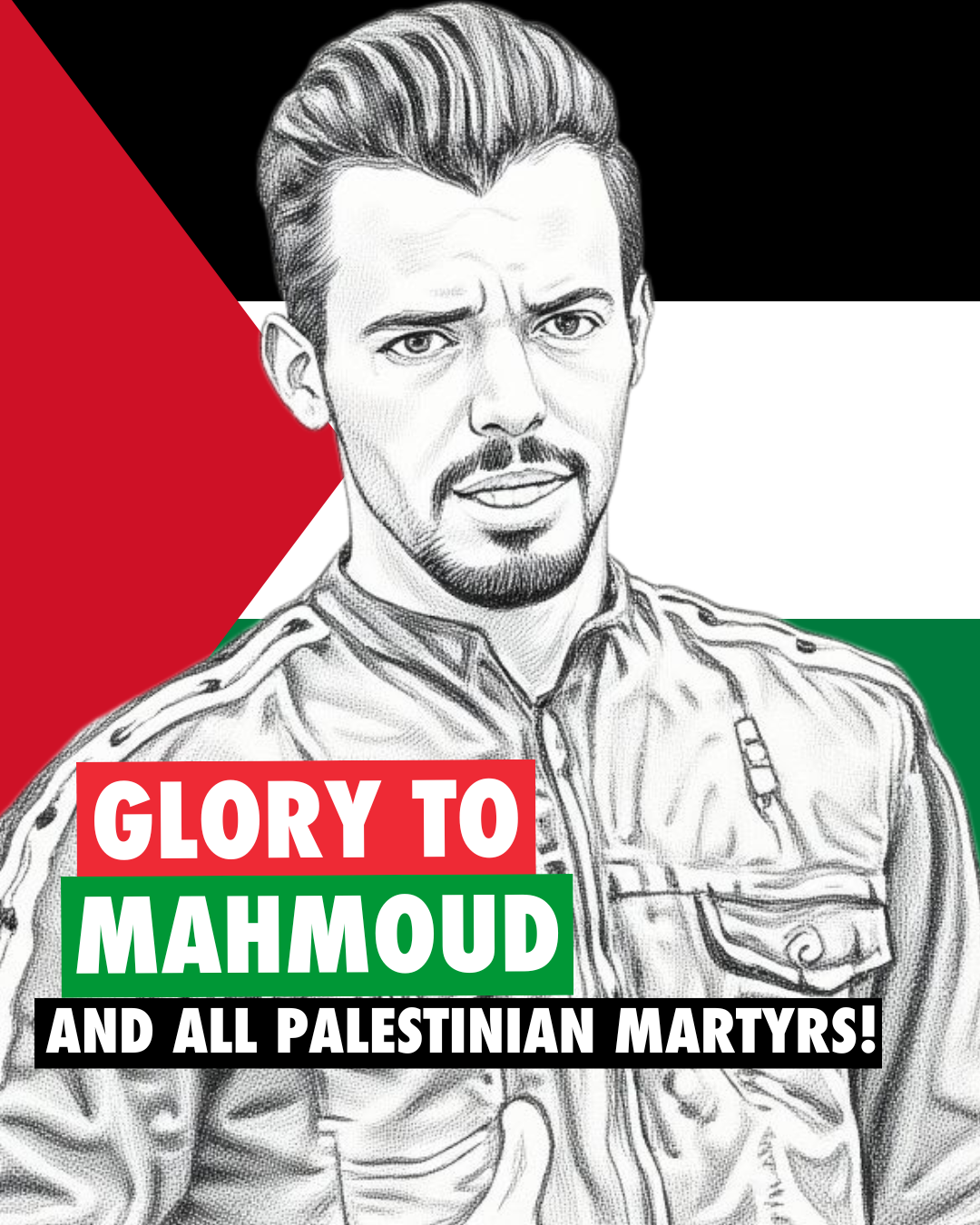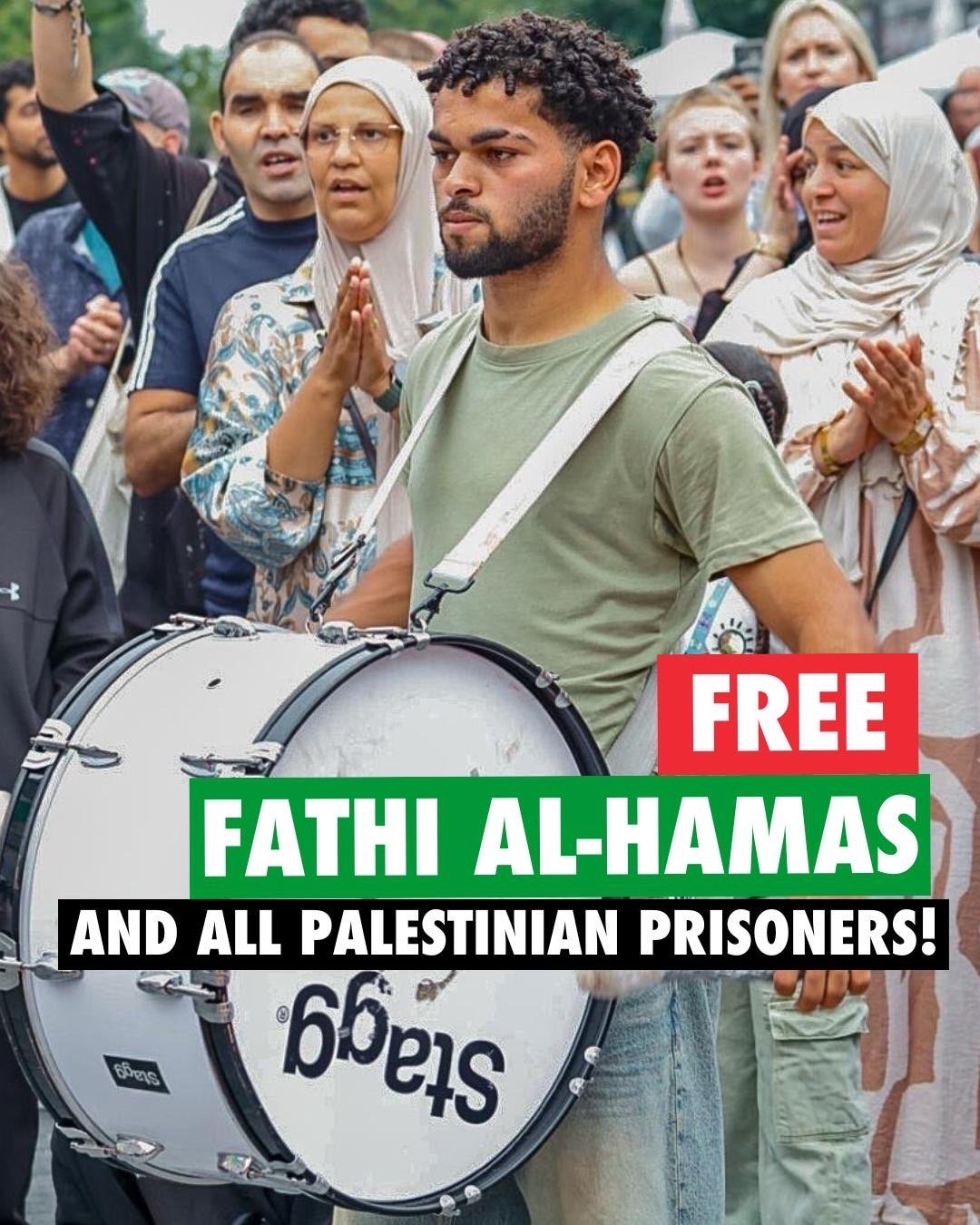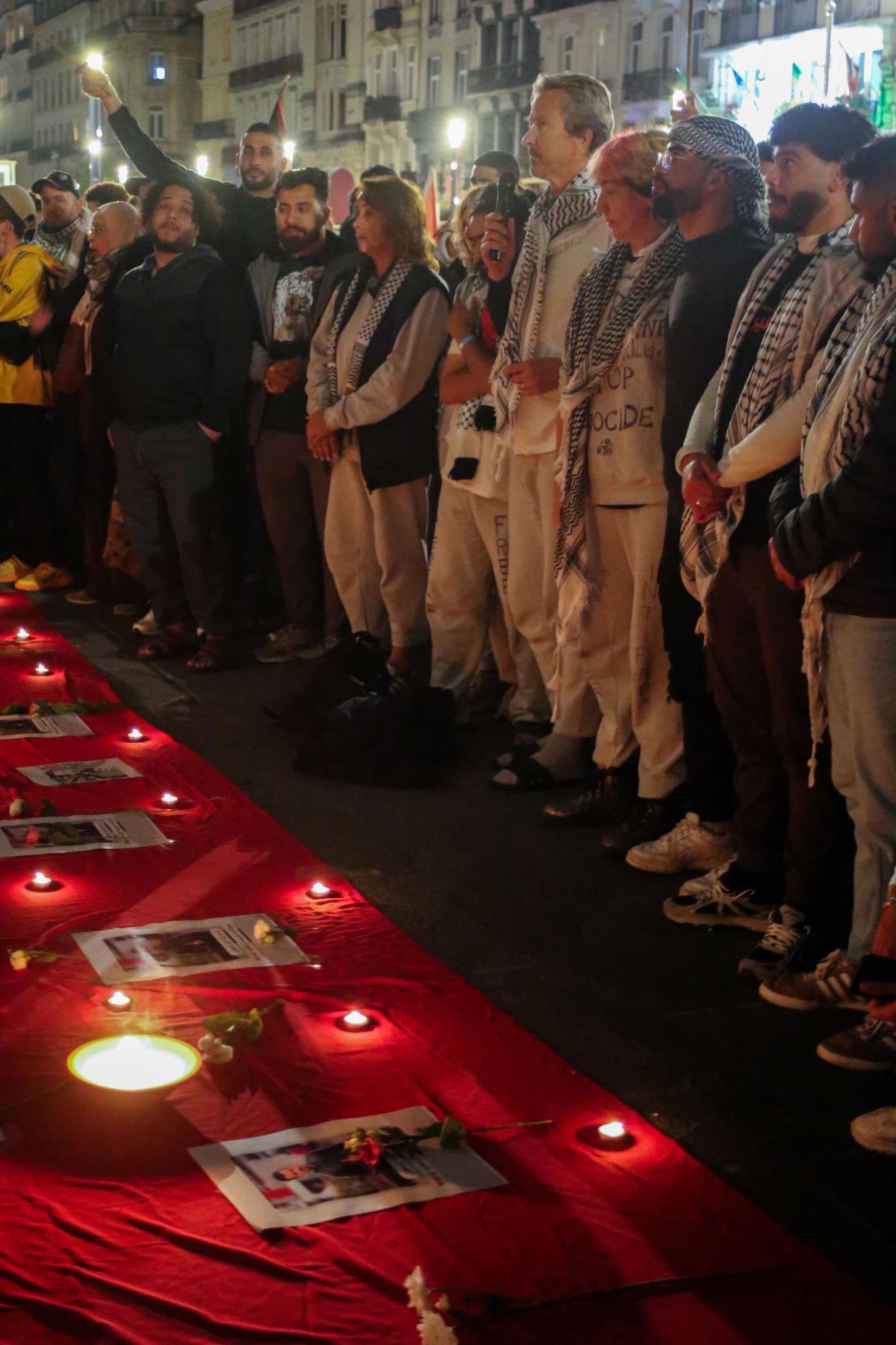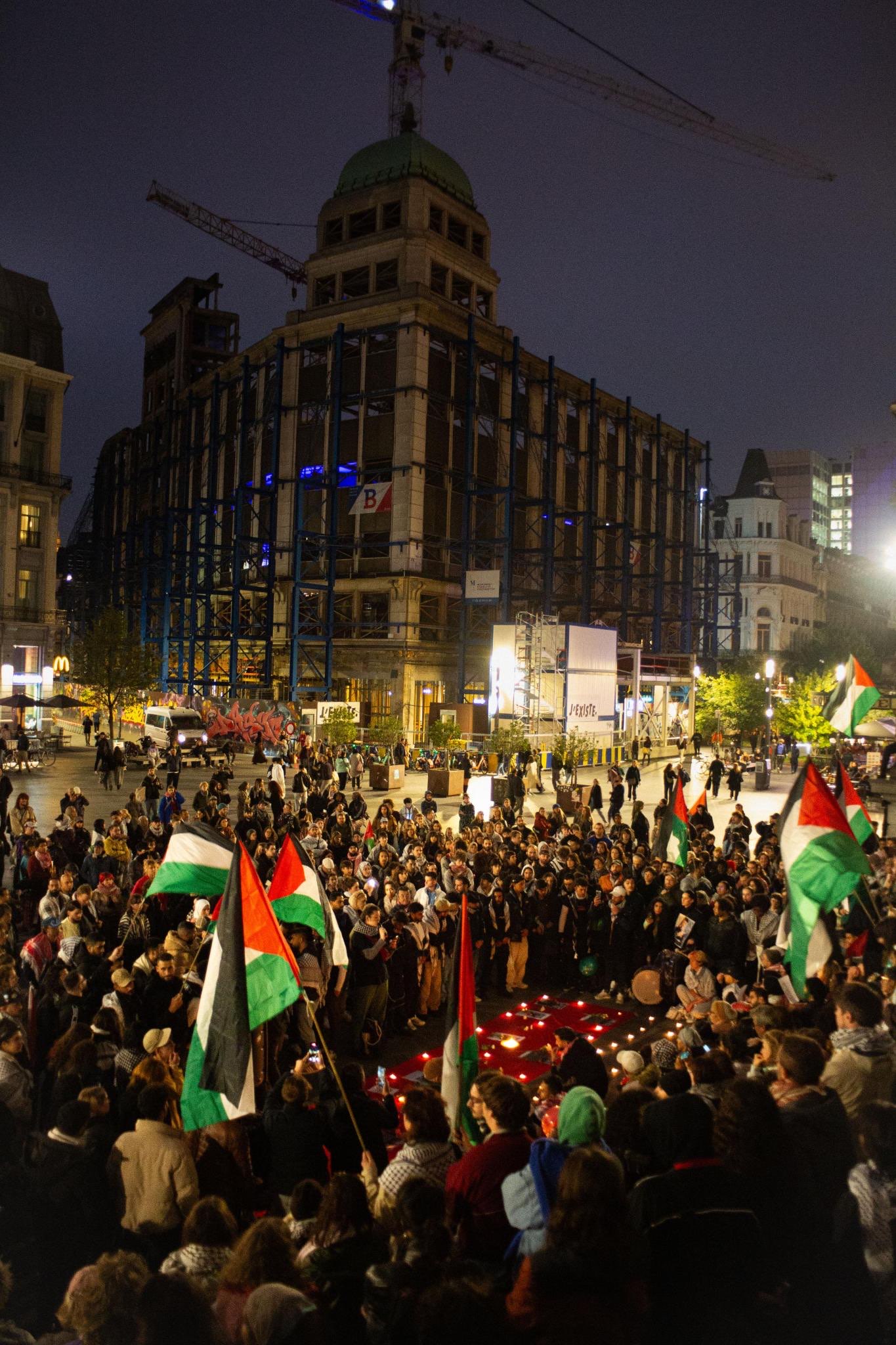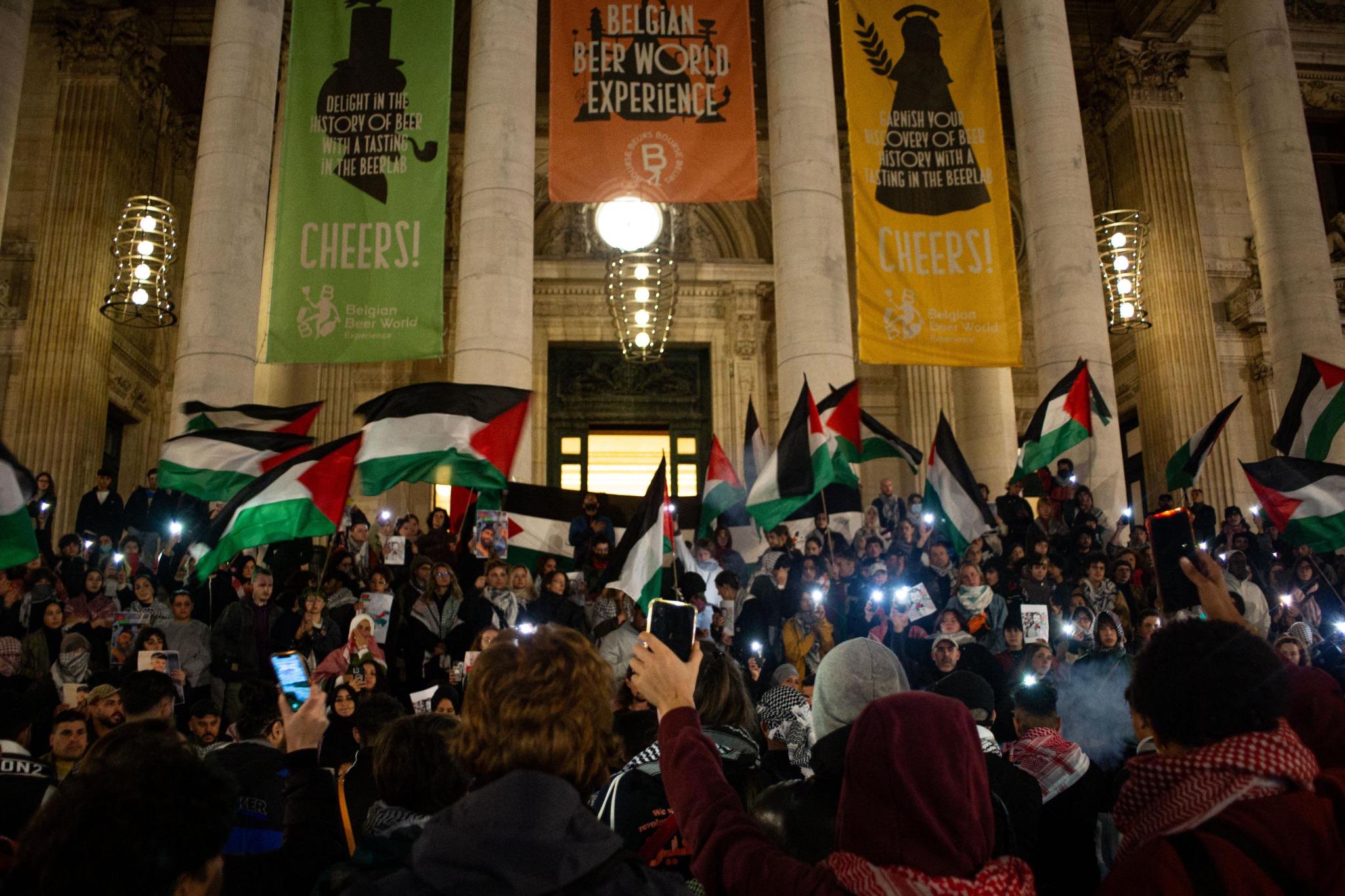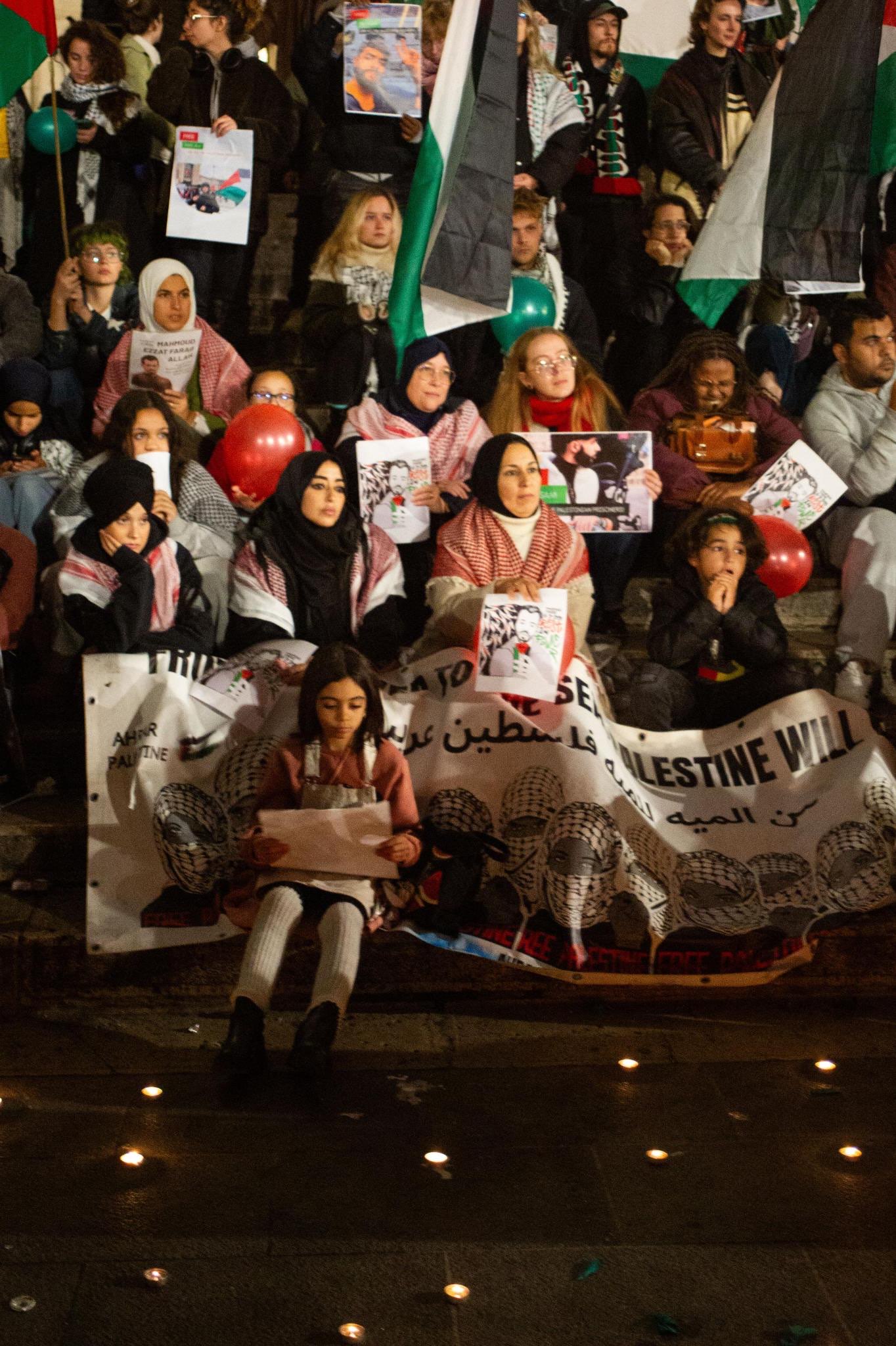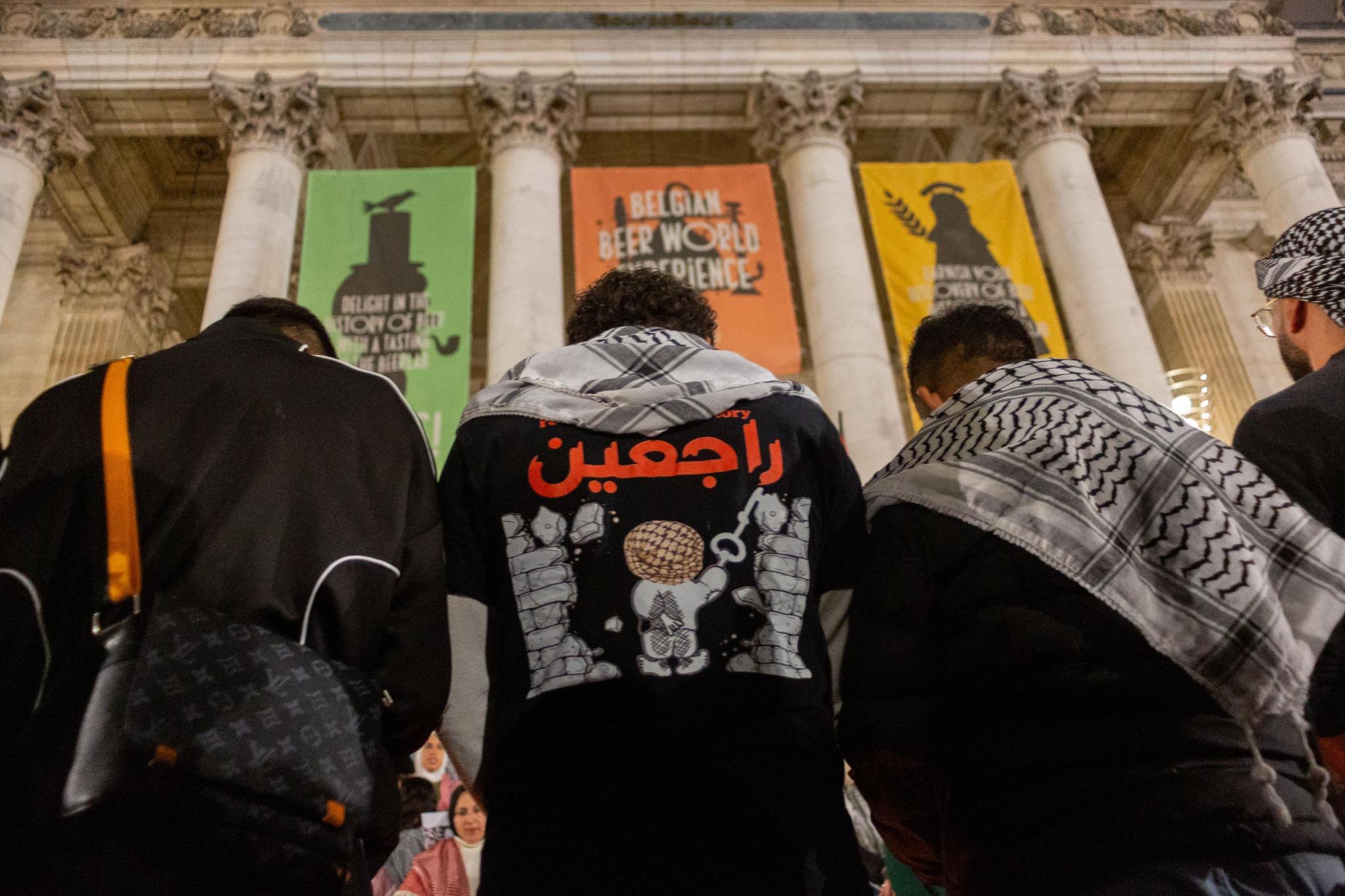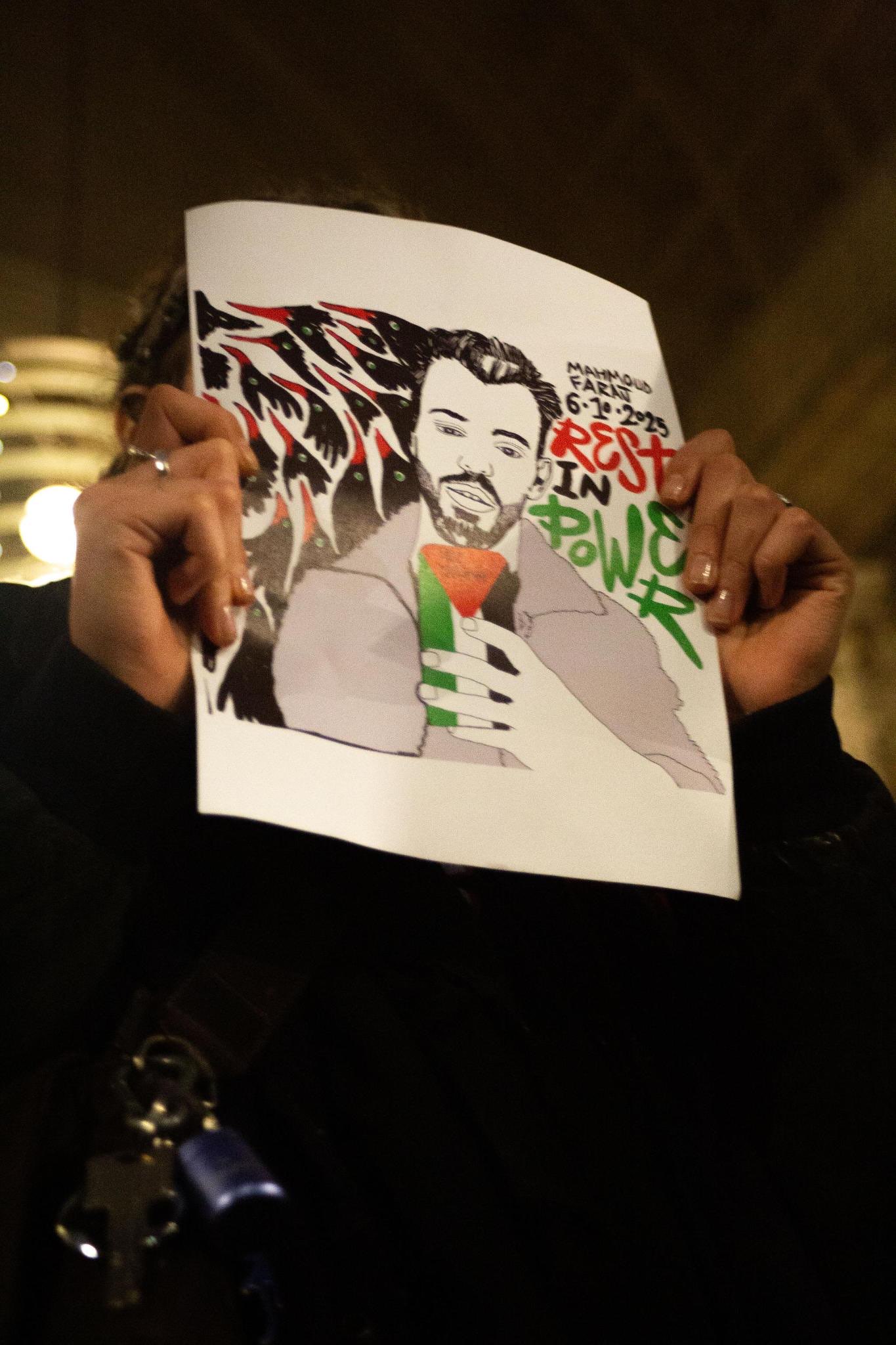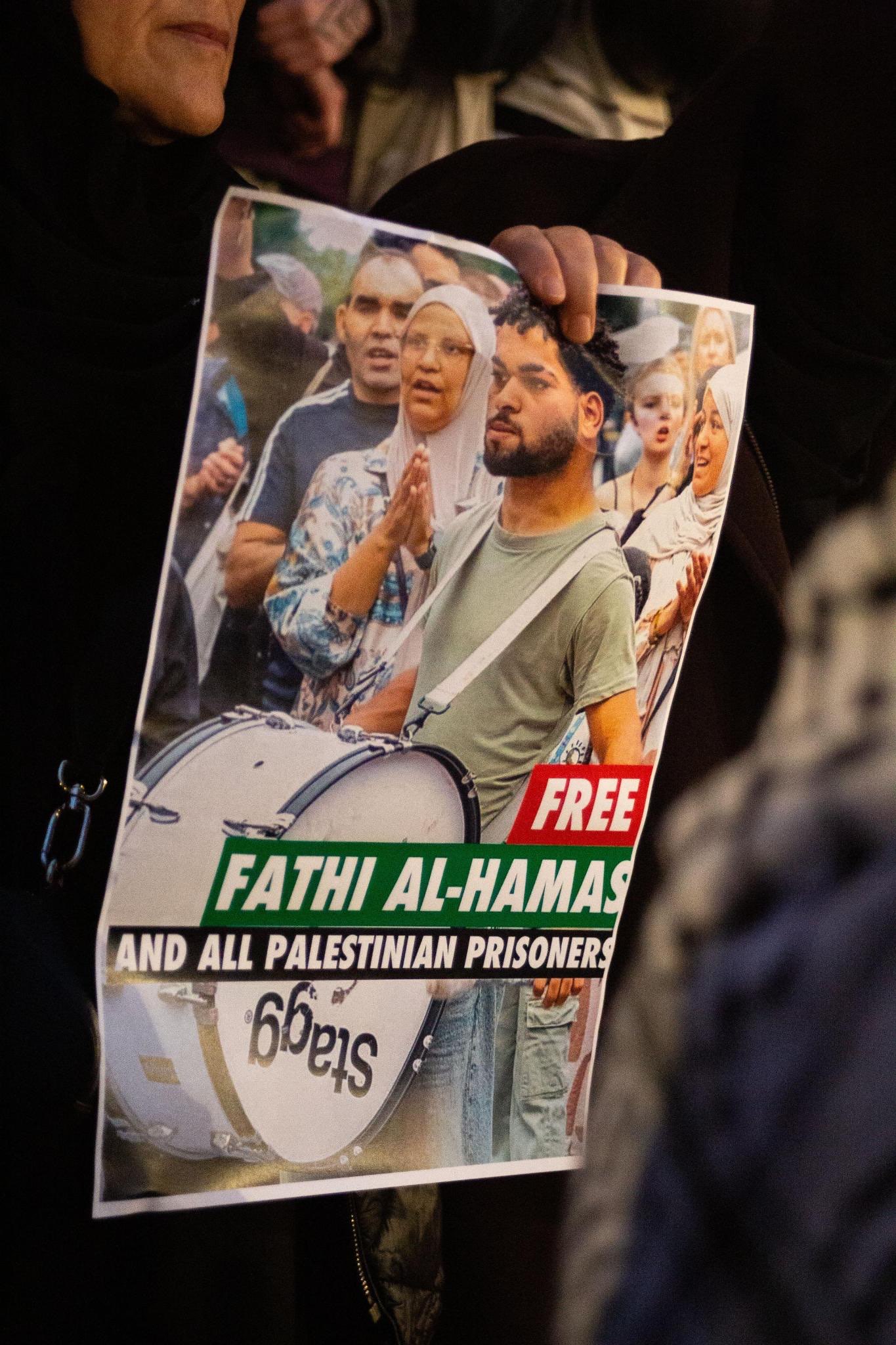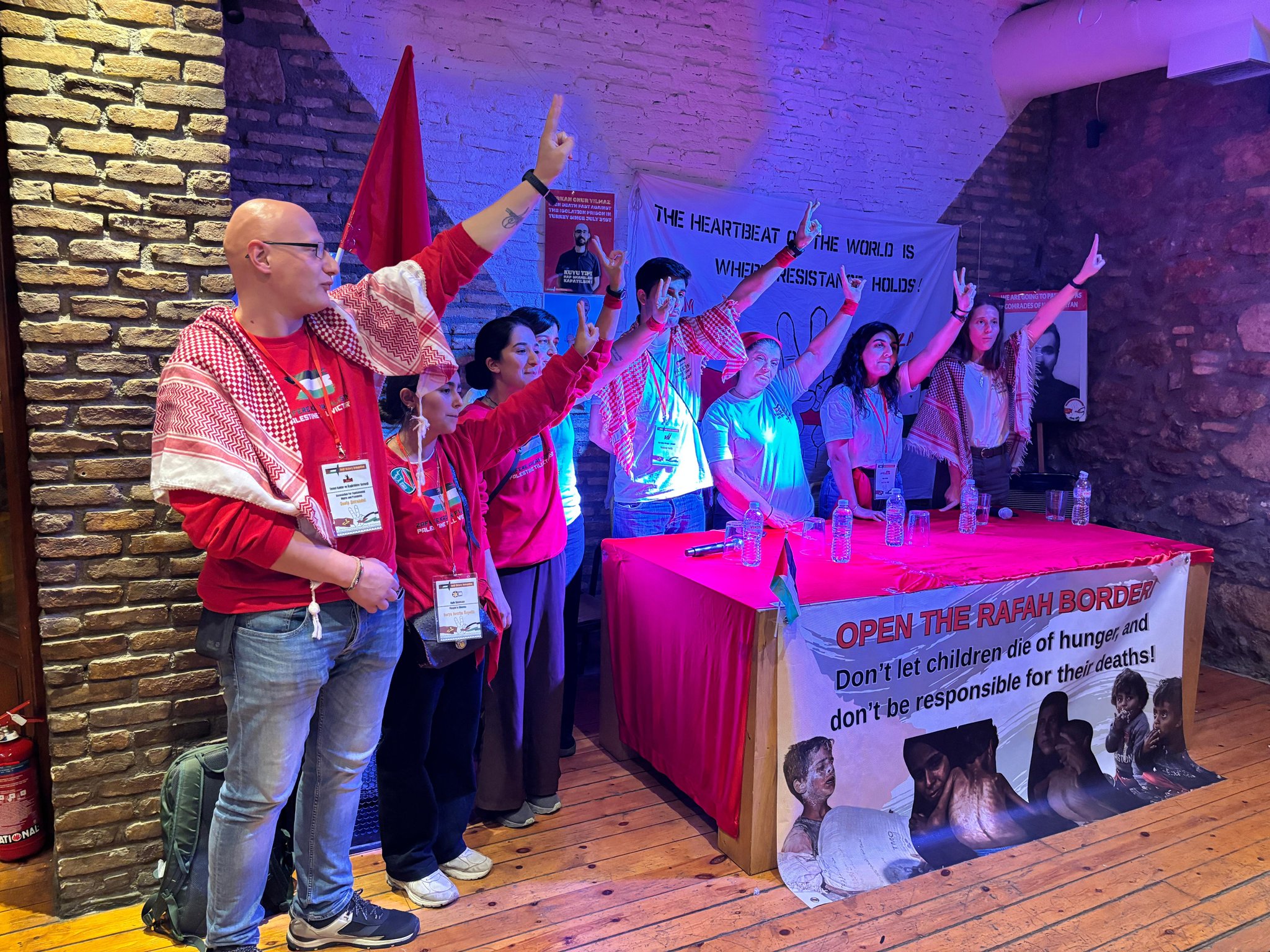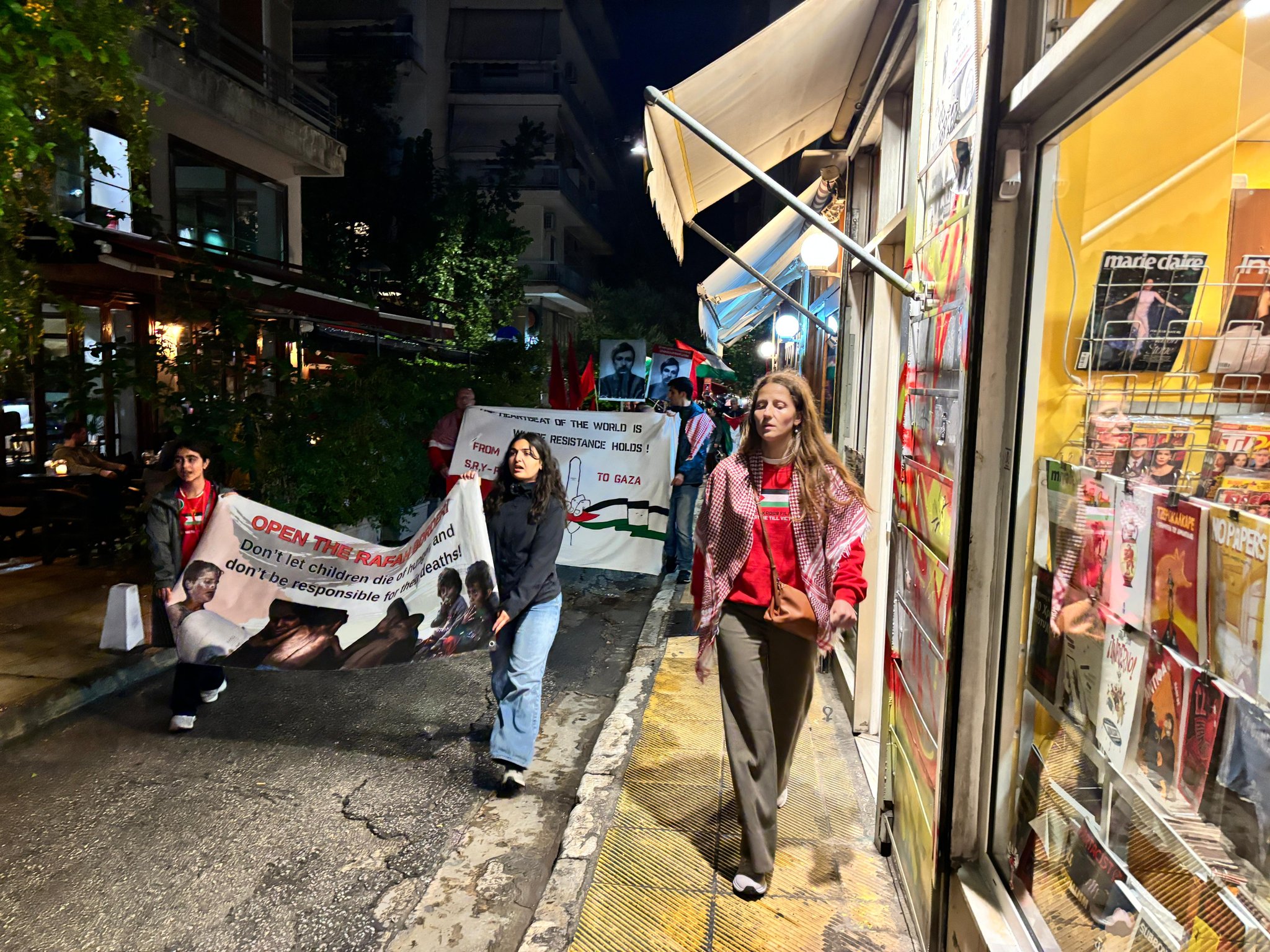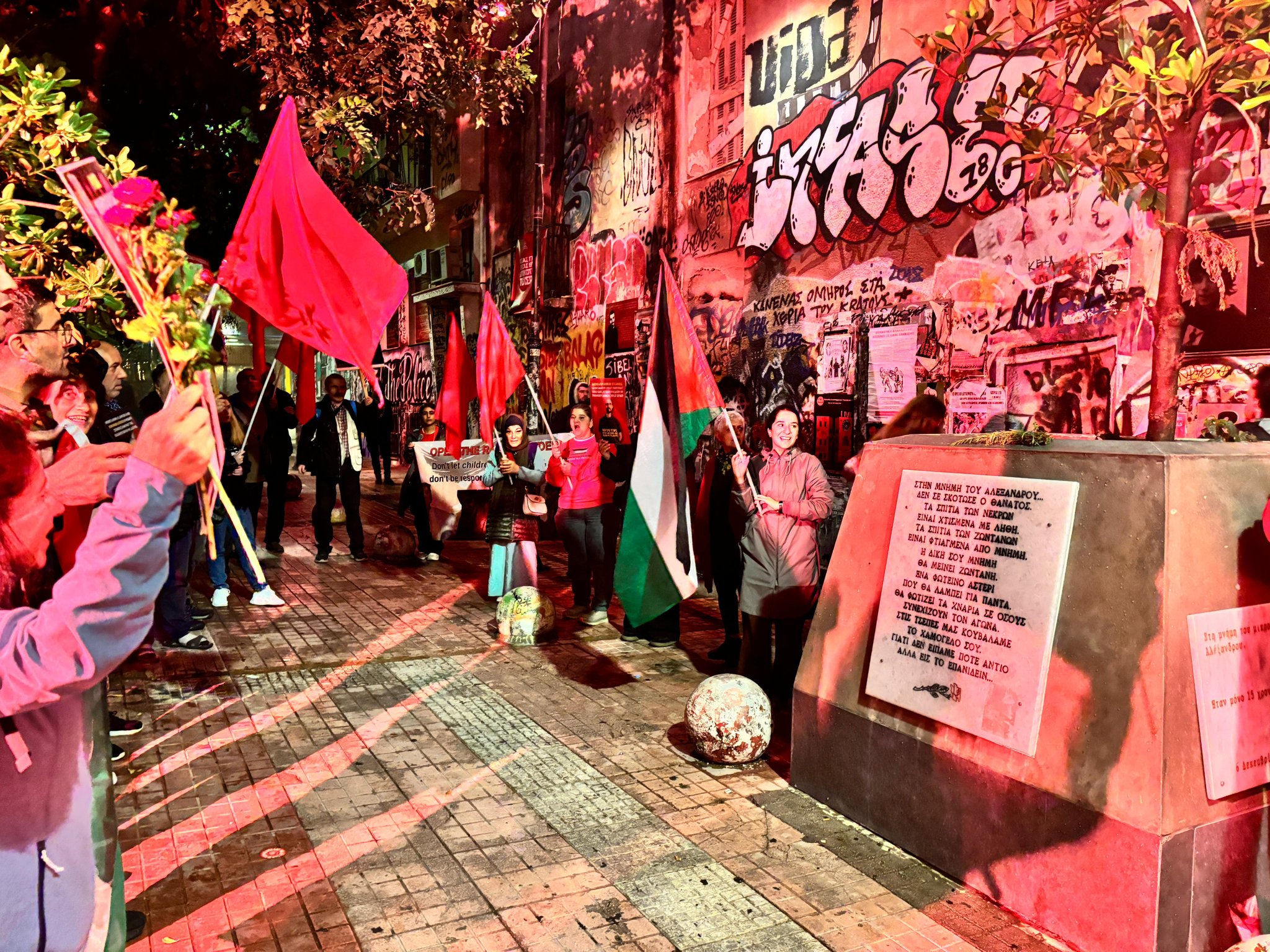
On 17 October 2025, we mark 24 years since the operation planned and executed by the Martyr Abu Ali Mustafa Brigades of the Popular Front for the Liberation of Palestine: at the Regency Hotel in “Tel Aviv”, fascist Israeli tourism minister Rehavam Ze’evi was executed by four freedom fighters: Majdi al-Rimawi, Hamdi Qu’ran, Basil Al-Asmar, and Ahed Abu Ghoulmeh. This operation was the fulfillment of a promise made a few weeks before by the new PFLP General Secretary, Ahmad Sa’adat: that the assassination of Abu Ali Mustafa, PFLP General Secretary, on 27 August 2001 would be avenged: “an eye for an eye, a tooth for a tooth, and a head for a head”.
Throughout Palestine and in the diaspora, masses celebrated this historic operation which marked the highest level “Israeli” official ever successfully targeted by the Resistance. Specifically, the operation marked an important effort to impose parity — and meaningful consequences and accountability — against the long-running assassination policy of the occupation, which has targeted — and continues to target — Palestinian, Lebanese, Yemeni, Iranian and other political and military leaders, writers, theoreticians, scientists, government officials, and revolutionaries.
This is one of the reasons that the occupation continues to refuse to release Sa’adat and the 17 October revolutionaries as a part of a prisoner exchange — Sa’adat, al-Rimawi, Qu’ran, al-Asmar, Abu Ghoulmeh, as well as Mohammed al-Rimawi and Mohammed Sa’adat, Ahmad Sa’adat’s brother, now martyred, are, like fellow imprisoned Resistance leaders Abdullah Barghouti, Ibrahim Hamed, Hassan Salameh, Abbas al-Sayyed, Jamal Abu al-Haija, Anas Jaradat, Muhannad Shreim, Mohammed Arman and Marwan Barghouti, both active leaders as well as symbols to the occupation that reflect the strength, power, and innovation of the armed and popular resistance of the Palestinian people.
Sa’adat, born in 1953 in al-Bireh, Palestine, the son of refugees expelled from their home in Deir Tarif in 1948, joined the student league of the PFLP in 1967 and officially joined the PFLP ranks in 1969. He is married to Abla Sa’adat, herself an activist, liberated by the Resistance and by the steadfastness of the people of Gaza in the Toufan Al-Ahrar prisoner exchange in January 2025, and is the father of four children. A lifelong revolutionary and militant of the Front, he has been arrested and detained multiple times for his militancy: 1969, 1970, 1973, 1975, 1976, 1989, 1992, 1995 and 1996. After being elected to the Central Committee of the PFLP in 1981 and to the Politburo in 1993, he was elected as secretary-general after the assassination of Abu Ali Mustafa in August 2001.
After the 17 October operation, and amid the burgeoning Al-Aqsa Intifada, the Palestinian Authority, who had previously detained Sa’adat in 1995 and 1996, and which had engaged in a series of campaigns of persecution, arrest and even assassination targeting resistance organizers in Hamas and Islamic Jihad, once again enforced its policy of security collaboration with the Zionist entity and conducted a ferocious arrest campaign targeted at PFLP members throughout the West Bank and Gaza. “Security coordination” is a mandatory requirement of the PA under the Oslo Accords that created it, ensuring that the PA, and especially its security services, serve as guards for the occupation and pursuers of the Resistance rather than protectors of the security of the Palestinian people from occupation soldier and settler violence.
More than 60 PFLP members were arrested and detained by the PA, including Abu Ghoulmeh, al-Rimawi, Qu’ran and al-Asmar. On 15 January 2002, under the pretext of negotiating for the release of his detained comrades, Sa’adat was lured to a meeting with Tawfiq Tirawi, where security forces of the PA arrested Ahmad Sa’adat. He has remained imprisoned since that time, first in the presidential compound of the PA in Ramallah before he and his comrades were transferred to the PA ‘s Jericho prison in May 2002. There, they were detained in Jericho ostensibly guarded by PA security forces — but under the direction and authority of American, Canadian and British guards.
When the Change and Reform Bloc, the electoral slate associated with Hamas, won the Palestinian Legislative Council elections in 2006, one of their key promises made was to free Ahmad Sa’adat, his comrades, and all of the Palestinian political prisoners held as part of “security coordination” with the Zionist entity. Zionists therefore moved quickly to avoid any potential such outcome. Less than 10 days before Ismail Haniyeh, later the martyred chair of the Hamas Political Bureau, was to be sworn in as the Prime Minister, on 14 March 2006, IOF started a siege of Jericho prison. The American, Canadian and British guards left their posts to clear the path for the occupation, and most of the PA guards surrendered very quickly, although two were martyred by the occupation.
Ahmad Sa’adat and 200 other political prisoners where then kidnapped and taken to zionist jails. Sa’adat was sentenced to 30 years in prison in an occupation court in December 2008. At his trial, he stated: “I do not stand to defend myself in front of your court… I stand to defend my people and their legitimate right to national independence and self-determination and return”. In every key moment, Sa’adat showed great moral integrity and revolutionary commitment to the cause to which he has dedicated his life, the liberation of Palestine and its people. Inside the prisons, he has been a leader in the prisoners’ movement, participating in multiple hunger strikes and collective protests, including the 2015 hunger strike against administrative detention, the 2017 Karameh, or dignity, strike and the 2019 hunger strike.
Throughout the years, Sa’adat has been subjected to particularly difficult conditions of detention and was held in isolation for years. In the past two years, following 7 October 2023 and Al-Aqsa Flood, and amid the genocide in Gaza, leaders of the prisoners’ movement have been particularly targeted for isolation and mistreatment. Both Sa’adat and Abu Ghoulmeh have been repeatedly isolated, denied medical care and abused inside the occupation prisons, with little access to expose the reality of their suffering. In January 2025, it was revealed that Sa’adat had been transferred and held in isolation in Megiddo prison, and that he was assaulted and brutally beaten during his transfer, while he faced dangerous health conditions and denial of medical care. In April 2025, released prisoners also reported that Abu Ghoulmeh had been beaten by occupation jailers while being transferred to Gilboa prison.
The liberated prisoners in the Toufan al-Ahrar exchange have testified to the horrific conditions inside the Zionist prisons and the routine and systematic use of torture, violence, sexual assault, medical abuse, and starvation against the imprisoned Palestinians, while the occupation has returned the bodies of imprisoned martyrs to Gaza in horrific condition, revealing visible signs of torture, blindfolding, handcuffing and hanging.
The assaults against Sa’adat illustrate the larger context of zionists’ attempts to isolate and particularly mistreat the leaders of the prisoners’ movement. This was also illustrated recently during the visit of notorious fascist Itamar Ben Gvir — often compared to Rehavam Ze’evi — to Marwan Barghouti, after which Barghouti was beaten by eight jailers until he lost consciousness; as liberated prisoner Ayman al-Sharabati revealed, they broke four of his ribs in the attack. Throughout the years of captivity, torture, crimes against humanity and abuse by the occupation and its jailers, the leaders of the prisoners’ movement, including Sa’adat and his comrades of the 17 October operation, have remained steadfast.
While we have been celebrating the liberation of 1968 prisoners in the Toufan al-Ahrar exchange’s third stage, obtained through the struggle and leadership of the Resistance and the sacrifice of the Palestinian people, especially in Gaza, Sa’adat, his fellow leaders of the prisoners’ movement, including Abu Ghoulmeh, Rimawi, al-Ahmar and Qur’an, and nearly 9,000 more remain in zionist jails. However, despite the severity of the suffering to which they have been subjected, especially in the past two years, the prisoners’ movement remains strong, as it can trust in the Resistance’s strong and sincere commitment to the objective of liberating all prisoners.
This date, 17 October, reminds us that, despite the full-scale impunity provided to the genocidaires by the United States, Britain, Canada, the European Union countries and other imperialist powers, at the hands of the Resistance, Zionist crimes do not go unpunished. As the Abu Ali Mustafa Brigades successfully avenged the assassination of Abu Ali Mustafa, national leader and symbol of the Palestinian people, on 17 October 2001, the Palestinian resistance, led by the Izz el-Din al-Qassam Brigades, exposed the illusions of the impenetrability of the Zionist military on the day of the great crossing, 7 October 2023, with the launch of the Al-Aqsa Flood operation and the beginning of the new era of the Palestinian Revolution, and indeed, the global intifada.
Today, the Palestinian Resistance today remains unified, active and committed to the struggle. The recent targeted assassination campaigns against leaders of the Resistance, in Gaza and throughout occupied Palestine, in Lebanon, in Yemen, in Qatar, in Iran, have taken the lives of great leaders: from Yahya Sinwar, Ismail Haniyeh and Mohammed Deif, to Sayyed Hassan Nasrallah, Sayyed Hashem Safieddine and Fouad al-Shukr, to Ahmed al-Rawhi and Mohammed Abdul-Karim al-Ghamari, to Mohammed Bagheri and Mohammed Saeed Izadi.
These crimes must also not remain unpunished. It is not the responsibility of the Resistance alone, but of all international institutions and those who seek justice, to hold the war criminals of the Zionist entity and the imperialist powers, responsible for their genocide, starvation, deliberate murder — and their assassination policy. When the international system fails utterly and instead provides impunity, the example of 17 October is a clear demonstration that the Resistance will not accept the ongoing targeting of their leaders and their people for destruction.
The imprisoned leaders and strugglers, including Sa’adat and the heroes of 17 October, have remained steadfast throughout the years of captivity, torture, mistreatment and crimes. Their stories, alongside the countless stories of Palestinian strugglers in zionist jails, leaders of the Resistance, serve as a call to action for all free people in the world to fight for the liberation of the imprisoned leaders and to impose it upon the Zionist regime.
As Sa’adat has written, “The Palestinian struggle for national liberation is part and parcel of the international movement of peoples for national liberation, international racial and economic justice, and an end to occupation, colonialism and imperialism”.
We urge all supporters of freedom, of Palestine and the Palestinian cause to speak out actively and take action through demonstrations, mass actions and direct actions to demand freedom for all prisoners in Zionist jails. The imperialist powers like the US, France, Canada, the United Kingdom, and their treacherous Arab reactionary allies, continue to arm, support and provide cover for the Zionist project, while pretending to celebrate “peace.” While the Resistance works to put an end to the threat of collaboration and restore life from the ashes of genocide in the Gaza Strip, they seek to threaten further genocide and international foreign occupations of Gaza and all of Palestine. The Palestinian prisoners will not be forgotten, and they will never be isolated from the Palestinian people, the Arab and regional liberation causes, and the international movement for justice. The struggle for the liberation of the prisoners is part and parcel of the struggle for the liberation of Palestine, all of Palestine — and the global struggle for liberation, sovereignty and self-determination confronting imperialism, led by the United States.
Glory to the martyrs!
Long Live the Resistance!
Freedom for Ahmad Sa’adat and all prisoners!
Palestine will be free, from the river to the see!

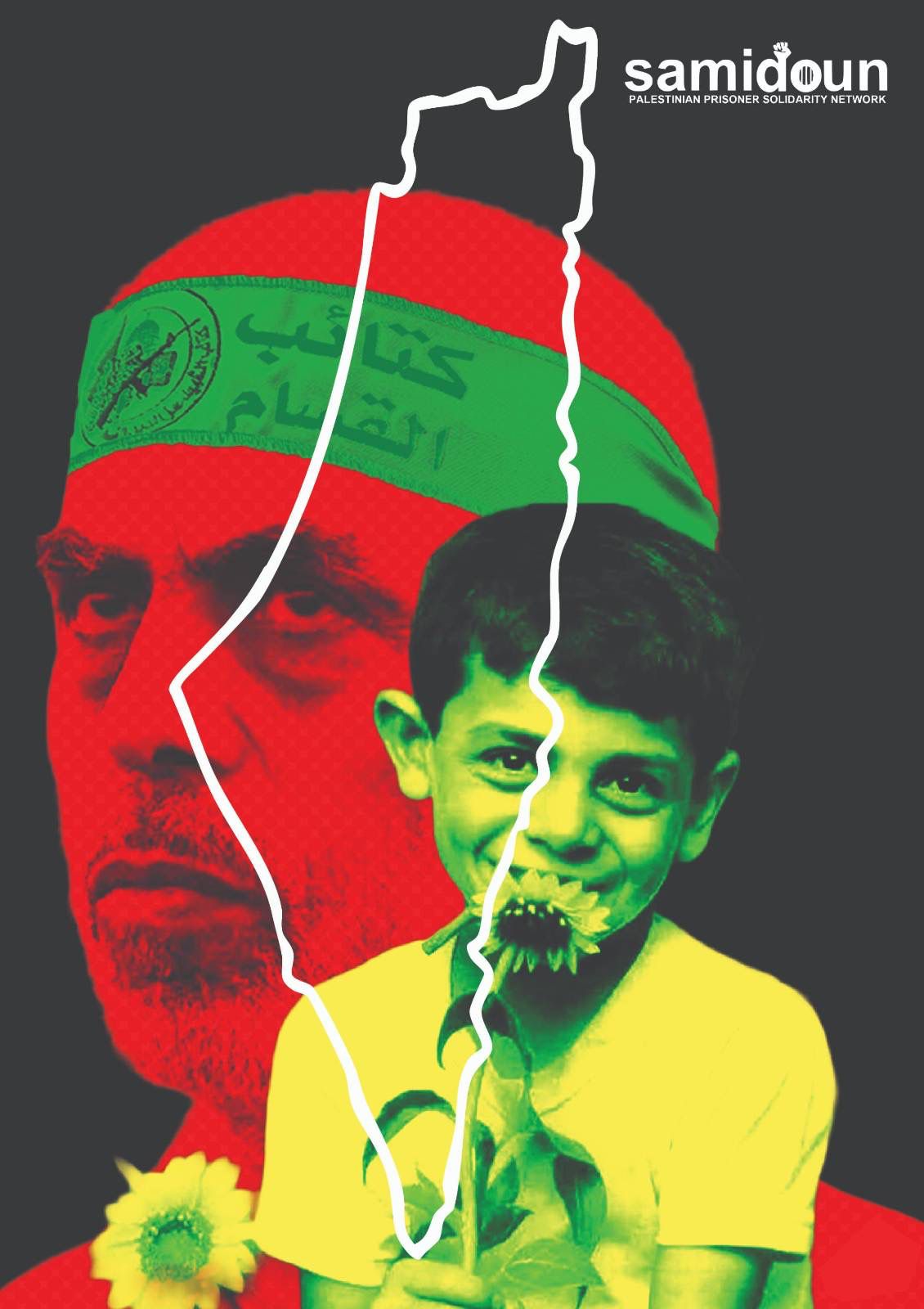
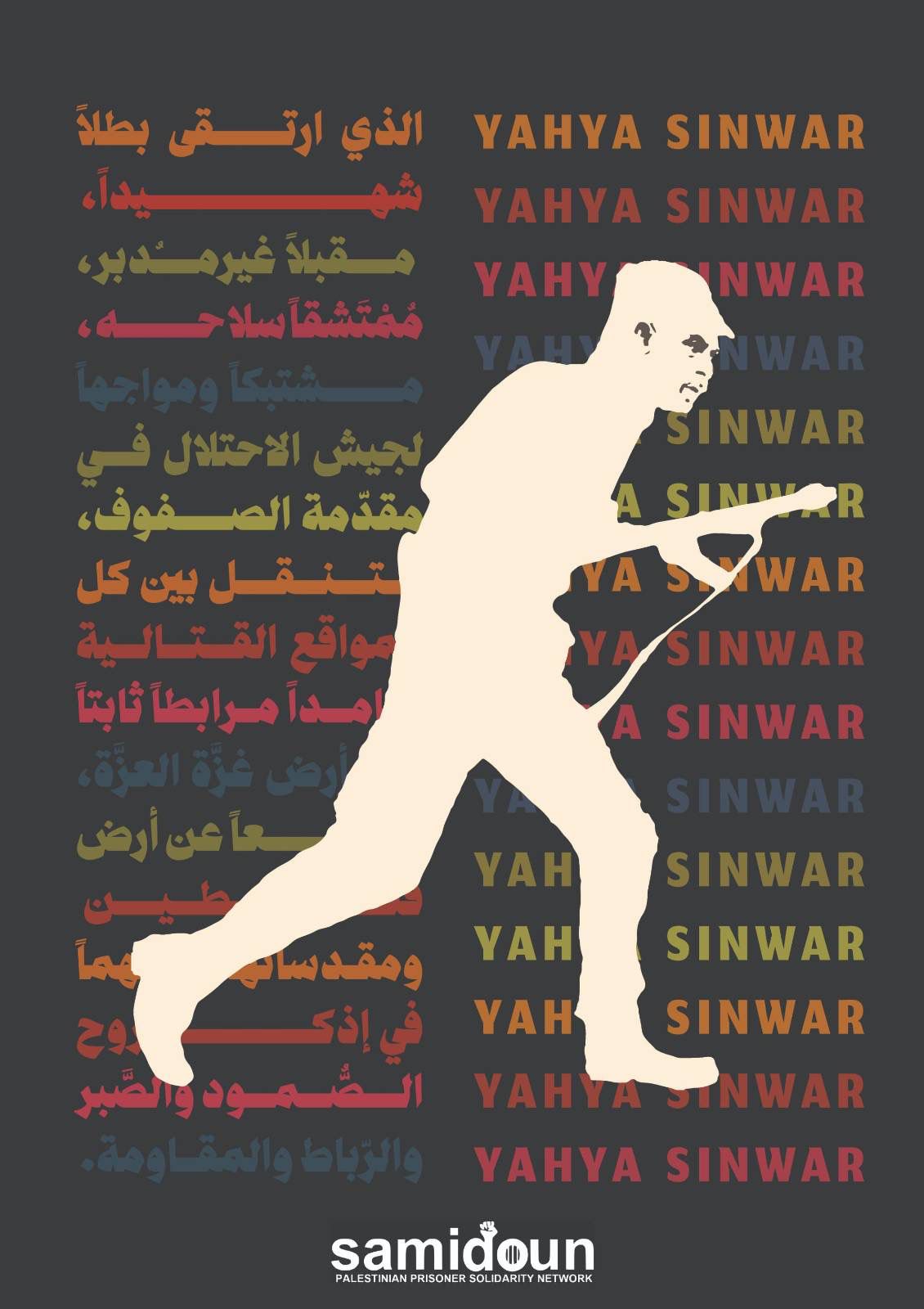
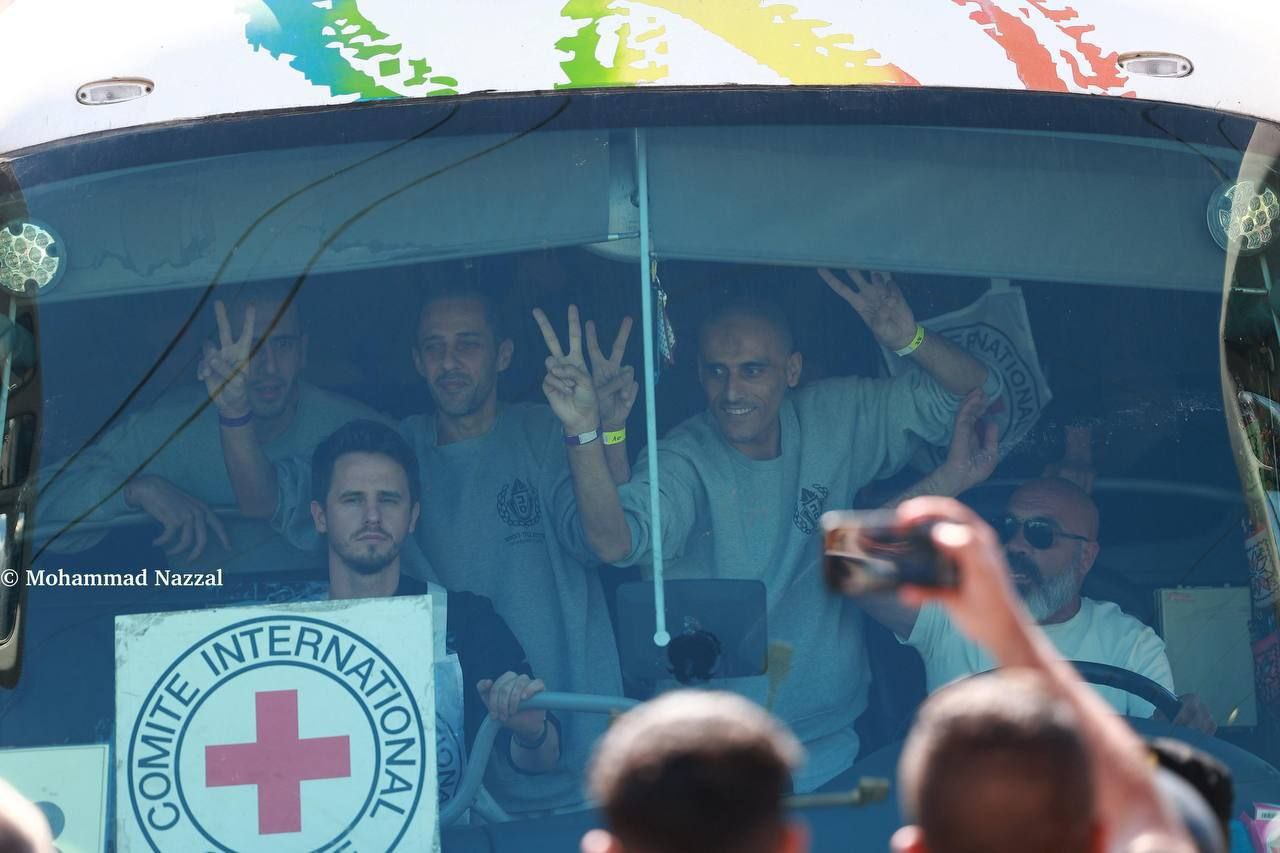 On the morning of 13 October 2025, the Asra Media Office published the lists of Palestinian prisoners to be liberated today by the Resistance in the latest stage of the prisoner exchange taking place as part of the ongoing ceasefire agreement in Gaza. News reports indicate that the Palestinian prisoners to be liberated have already boarded buses — after being subjected to torture, abuse and attempted humiliation inside the occupation prisons, once again.
On the morning of 13 October 2025, the Asra Media Office published the lists of Palestinian prisoners to be liberated today by the Resistance in the latest stage of the prisoner exchange taking place as part of the ongoing ceasefire agreement in Gaza. News reports indicate that the Palestinian prisoners to be liberated have already boarded buses — after being subjected to torture, abuse and attempted humiliation inside the occupation prisons, once again.

